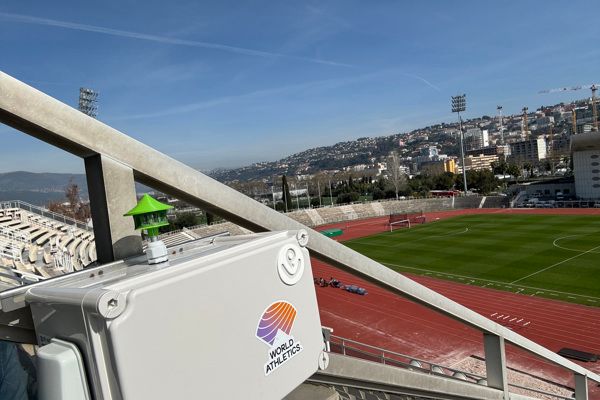World Athletics Elevates Athlete Health: Hyperlocal Air Quality Monitoring Implementation
World Athletics implements hyperlocal air quality and pollen monitoring at the Parc des Sports Charles Ehrmann stadium in Nice, prioritizing athletes’ respiratory health. Athletes receive real-time data to manage allergies and optimize performance.

Safeguarding Athletes’ Respiratory Health: World Athletics Enhances Air Quality Monitoring
In a proactive move to prioritize the well-being of athletes, the Health & Science Department at World Athletics has taken a significant step forward in monitoring air quality and pollen levels at sporting venues.
Improving Air Quality Monitoring at Sporting Venues
Following the successful installation of an air quality sensor at the Parc des Sports Charles Ehrmann stadium in Nice, the department has now added a Lify-Air pollen measurement sensor to the facility. This means that athletes using the stadium can now access crucial hyperlocal information to better manage their respiratory health.
Addressing Respiratory Risks for Athletes
Exposure to airborne pollen poses a substantial risk to many athletes, who may experience allergic reactions and respiratory issues during outdoor sporting events. Studies have shown that a significant percentage of endurance athletes, such as marathon runners, report upper respiratory symptoms after competing. Moreover, respiratory diseases, including asthma and allergenic rhinitis, are among the most commonly reported chronic conditions among athletes.
“The decision to enhance air quality monitoring at the Nice stadium is a direct response to the growing concerns surrounding the impact of air pollution, greenhouse gases, and global warming on pollen levels and the prevalence of respiratory allergic diseases among athletes.”
As these environmental factors continue to shape the flowering patterns of plants and the structure of pollen grains, the need for targeted, localized data has become increasingly urgent.
Empowering Athletes with Real-Time Information
By providing athletes with real-time information on pollen levels and air quality, the Health & Science Department aims to empower them to make informed decisions about their training and competition schedules. This data will enable athletes to minimize their exposure to allergens and adapt their treatment plans accordingly, ultimately supporting their performance and overall well-being.
A Model for the Future
The availability of hyperlocal air quality and pollen data is a significant stride in World Athletics’ commitment to safeguarding the health and safety of its competitors. As the organization continues to prioritize environmental factors in its operations, this innovative project serves as a model for other sporting venues to follow, ensuring that athletes can thrive in optimal conditions.
🔗 Source




